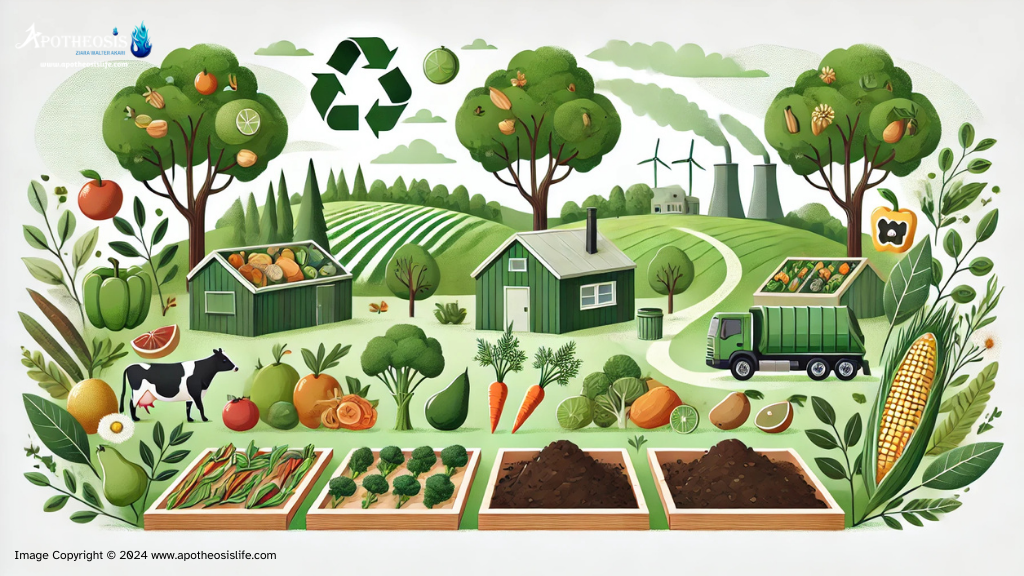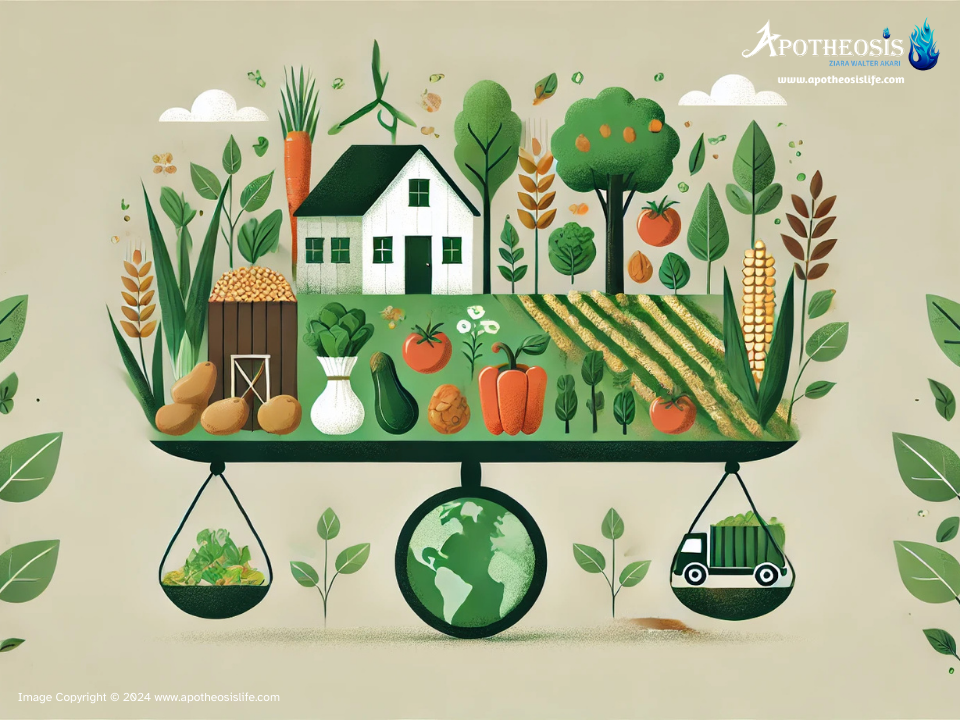As the world confronts the growing climate crisis, rethinking our food systems has become an essential part of the conversation on sustainable living. Our diets are directly linked to greenhouse gas emissions, with agriculture accounting for approximately one-third of global emissions. From production and processing to transportation and waste, each step in the food supply chain impacts our planet’s climate. By making conscious choices in what and how we eat, we can significantly reduce the carbon footprint of our diets and contribute to a more sustainable food system.
The Carbon Footprint of Food
The carbon footprint of our diets refers to the total greenhouse gas emissions produced across the entire lifecycle of the food we consume. This includes the emissions generated from growing crops, raising livestock, transporting food, processing, packaging, and even food waste. Foods that require more resources, such as meat and dairy, generally have a higher carbon footprint compared to plant-based foods.
For example, producing beef results in high levels of methane emissions, a potent greenhouse gas, due to the digestive processes of ruminant animals. Additionally, livestock farming requires extensive land, water, and feed resources, which add to its environmental impact. Studies show that shifting toward a more plant-based diet can reduce an individual’s dietary carbon footprint by up to 50%.
The Impact of Livestock Farming on Climate Change
Livestock farming contributes to climate change in several ways:
Methane Emissions: As mentioned, cattle and other ruminant animals produce methane, which is over 25 times more potent than carbon dioxide in trapping heat in the atmosphere.
Deforestation: Large areas of forests are often cleared to make room for grazing land or to grow feed crops for livestock, leading to significant carbon release from the loss of carbon-storing trees.
Land and Water Use: Livestock farming is resource-intensive, requiring vast amounts of land and water, contributing to habitat destruction and water scarcity.
Shifting away from meat-intensive diets to more sustainable plant-based options can significantly lessen these impacts, leading to more sustainable land use and reduced emissions.

Image Copyright © 2024 www.apotheosislife.com
Food Waste and Its Role in Greenhouse Gas Emissions
Food waste is another critical contributor to emissions. When food is wasted, all the resources used in its production, including land, water, and energy, are wasted as well. Moreover, food waste in landfills decomposes and releases methane. According to the United Nations Food and Agriculture Organization (FAO), if food waste were a country, it would be the third-largest emitter of greenhouse gases after China and the United States.
To reduce food waste, both consumers and businesses can adopt practices like:
Planning meals carefully to prevent over-purchasing.
Storing food properly to prolong its shelf life.
Composting organic waste to minimize landfill methane emissions.
Reducing food waste not only decreases emissions but also conserves resources, ultimately reducing the environmental strain on our planet.
Sustainable Dietary Choices to Lower Carbon Emissions
Several dietary shifts can help reduce our carbon footprint:
Opting for More Plant-Based Meals: A plant-based diet, rich in vegetables, grains, legumes, and fruits, typically requires fewer resources and emits fewer greenhouse gases.
Choosing Locally Grown Foods: Foods that are grown locally don’t need to be transported over long distances, reducing the emissions from transportation.
Prioritizing Seasonal Produce: Seasonal foods require less artificial intervention like greenhouses, which consume energy, making them more environmentally friendly.
Reducing Food Waste: Planning meals, using leftovers, and composting can help prevent food waste and reduce emissions.
The Role of Alternative Proteins in a Low-Carbon Diet
Alternative proteins, including plant-based meats and lab-grown meat, are gaining popularity as they offer similar tastes and textures to traditional meat without the same environmental impact. Plant-based meats like those made from soy, pea, or wheat protein require fewer resources and generate lower emissions than animal meat. Similarly, lab-grown or cultured meat, though still in development, promises to provide a more sustainable alternative by producing meat without raising animals.
Policy and Systemic Changes for Sustainable Food Systems
While individual choices are essential, systemic changes are also crucial for rethinking our food systems. Policymakers, food producers, and retailers all play vital roles in building a sustainable food system:
Incentivizing Sustainable Agriculture: Governments can support farmers who adopt sustainable practices, such as regenerative agriculture, which restores soil health and captures carbon.
Improving Food Supply Chains: Reducing emissions in the transportation, storage, and processing of food can make supply chains more sustainable.
Educating Consumers: Public awareness campaigns on the environmental impact of dietary choices can empower people to make more informed decisions.
Rethinking our food systems to reduce the carbon footprint of our diets is a critical component of climate action. By choosing plant-based foods, reducing food waste, and supporting sustainable farming practices, we can each contribute to a more sustainable, climate-friendly world. Both individuals and industries must take action to reform our food systems and align with climate goals, making mindful eating habits a cornerstone of our shared path toward sustainability.
Details of the Featured Image
A balanced approach to food choices that support a sustainable, low-carbon future.
Image Copyright © 2024 www.apotheosislife.com
Author
Ziara Walter Akari
© 2024 www.apotheosislife.com
Citations
- Carbon Footprint of Global Food Production:
United Nations Food and Agriculture Organization (FAO). “Food Wastage Footprint & Climate Change.” Available at: http://www.fao.org/3/i3347e/i3347e.pdf. - Impact of Livestock on Methane Emissions:
United States Environmental Protection Agency (EPA). “Sources of Greenhouse Gas Emissions.” Available at: https://www.epa.gov/ghgemissions/sources-greenhouse-gas-emissions. - Reducing Carbon Footprint Through Plant-Based Diets:
The Lancet. “Food in the Anthropocene: the EAT–Lancet Commission on healthy diets from sustainable food systems.” Available at: https://www.thelancet.com/commissions/EAT. - Food Waste and Greenhouse Gas Emissions:
United Nations Environment Programme (UNEP). “Food Waste Index Report 2021.” Available at: https://www.unep.org/resources/report/unep-food-waste-index-report-2021. - Alternative Proteins and Sustainability:
Good Food Institute. “Alternative Proteins: A Carbon Footprint Analysis.” Available at: https://gfi.org/resource/environmental-impact-alternative-proteins.
